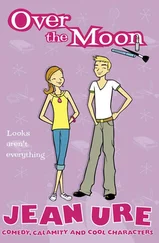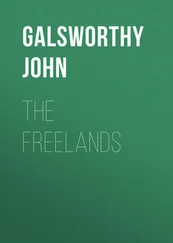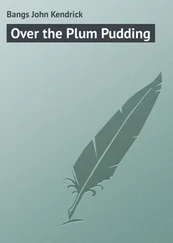John Galsworthy - Over the River
Здесь есть возможность читать онлайн «John Galsworthy - Over the River» весь текст электронной книги совершенно бесплатно (целиком полную версию без сокращений). В некоторых случаях можно слушать аудио, скачать через торрент в формате fb2 и присутствует краткое содержание. Жанр: Классическая проза, на английском языке. Описание произведения, (предисловие) а так же отзывы посетителей доступны на портале библиотеки ЛибКат.
- Название:Over the River
- Автор:
- Жанр:
- Год:неизвестен
- ISBN:нет данных
- Рейтинг книги:3 / 5. Голосов: 1
-
Избранное:Добавить в избранное
- Отзывы:
-
Ваша оценка:
- 60
- 1
- 2
- 3
- 4
- 5
Over the River: краткое содержание, описание и аннотация
Предлагаем к чтению аннотацию, описание, краткое содержание или предисловие (зависит от того, что написал сам автор книги «Over the River»). Если вы не нашли необходимую информацию о книге — напишите в комментариях, мы постараемся отыскать её.
Over the River — читать онлайн бесплатно полную книгу (весь текст) целиком
Ниже представлен текст книги, разбитый по страницам. Система сохранения места последней прочитанной страницы, позволяет с удобством читать онлайн бесплатно книгу «Over the River», без необходимости каждый раз заново искать на чём Вы остановились. Поставьте закладку, и сможете в любой момент перейти на страницу, на которой закончили чтение.
Интервал:
Закладка:
Dinny was startled by the way he withdrew almost at once into contemplation of a document which he raised from the desk in front.
‘He really is an old ducky,’ she thought, and her gaze went back to the jury rising from their seats. Now that the ordeals of her sister and Tony Croom were over, she felt very little interested. Even the Court today was but sparsely filled.
‘They only came to enjoy the suffering,’ was her bitter thought.
A voice said:
“Clare is still in the Admiralty Court when you want her.” Dornford, in wig and gown, was sitting down beside her. “How did the Judge sum up?”
“Very fairly.”
“He IS fair.”
“But barristers, I think, might wear: ‘Fairness is a virtue, a little more won’t hurt you,’ nicely printed on their collars.”
“You might as well print it round the necks of hounds on a scent. Still, even this Court isn’t as bad in that way as it used to be.”
“I’m so glad.”
He sat quite still, looking at her. And she thought:
‘His wig suits the colour of his face.’
Her father leaned across her.
“How long do they give you to pay costs in, Dornford?”
“A fortnight is the usual order, but you can get it extended.”
“It’s a foregone conclusion,” said the General glumly. “Well, she’ll be free of him.”
“Where is Tony Croom?” asked Dinny.
“I saw him as I came in. At the corridor window—quite, close. You can’t miss him. Shall I go and tell him to wait?”
“If you would.”
“Then will you all come to my chambers when it’s over?” Receiving their nods, he went out, and did not come back.
Dinny and her father sat on. An usher brought the Judge a written communication; he wrote upon it, and the usher took it back to the jury. Almost immediately they came in.
The broad and pleasant face of her who looked like a housekeeper had a mortified expression as if she had been overridden; and, instantly, Dinny knew what was coming.
“Members of the jury, are you agreed on your verdict?”
The foreman rose.
“We are.”
“Do you find the respondent guilty of adultery with the co-respondent?”
“Yes.”
“Do you find the co-respondent guilty of adultery with the respondent?”
‘Isn’t that the same?’ thought Dinny.
“Yes.”
“And what damages do you say the co-respondent should be ordered to pay?”
“We think that he should pay the costs of all the parties to the action.”
Through Dinny passed the thought: ‘The more one loves the more one pays.’ Barely listening to the Judge’s words, she whispered to her father, and slipped away.
“Young Croom was leaning against the stone that framed the window, and she thought she had never seen so desolate a figure.
“Well, Dinny?”
“Lost. No damages, just all the costs. Come out, I want to talk to you.”
They went in silence.
“Let’s go and sit on the Embankment.”
Young Croom laughed. “The Embankment! Marvellous!”
No other word passed between them till they were seated under a plane tree whose leaves were not yet fully unfurled in that cold spring.
“Rotten!” said Dinny.
“I’ve been a complete fool all through, and there’s an end of it.”
“Have you had anything to eat these last two days?”
“I suppose so. I’ve drunk quite a lot, anyway.”
“What are you going to do now, dear boy?”
“See Jack Muskham, and try and get another job somewhere out of England.”
Dinny felt as if she had grasped a stick by the wrong end. She could only be helpful if she knew Clare’s feelings.
“No one takes advice,” she said, “but couldn’t you manage to do nothing at all for a month or so?”
“I don’t know, Dinny.”
“Have those mares come?”
“Not yet.”
“Surely you won’t give that job up before it’s even begun?”
“It seems to me I’ve only got one job at the moment—to keep going somehow, somewhere.”
“Don’t I know that feeling? But don’t do anything desperate! Promise! Good-bye, my dear, I must hurry back.”
She stood up and pressed his hand hard.
When she reached Dornford’s chambers, her father and Clare were already there, and ‘very young’ Roger with them.
Clare’s face looked as though the whole thing had happened to someone else.
The General was saying:
“What will the total costs come to, Mr. Forsyte?”
“Not far short of a thousand, I should say.”
“A thousand pounds for speaking the truth! We can’t possibly let young Croom pay more than his own share. He hasn’t a bob.”
‘Very young’ Roger took snuff.
“Well,” said the General, “I must go and put my wife out of her misery. We’re going back to Condaford this afternoon, Dinny. Coming?”
Dinny nodded.
“Good! Many thanks, Mr. Forsyte. Early in November, then—the decree? Good-bye!”
When he had gone Dinny said in a low voice:
“Now that it’s over, what do you really think?”
“As I did at first: If you’d been your sister we should have won.”
“I want,” said Dinny coldly, “to know whether you believe them or not?”
“On the whole—yes.”
“Is it impossible for a lawyer to go further than that?”
‘Very young’ Roger smiled.
“No one tells the truth without mental reservations of some kind.”
‘Perfectly true,’ thought Dinny. “Could we have a taxi?”
In the cab Clare said: “Do something for me, Dinny. Bring me my things to the Mews.”
“Of course.”
“I don’t feel like Condaford. Did you see Tony?”
“Yes.”
“How is he?”
“Rotten.”
“Rotten!” repeated Clare, bitterly. “How could I help what they sprung on me? I lied for him, anyway.”
Dinny, looking straight before her, said:
“When you can, tell me exactly what your feeling towards him is.”
“When I know myself, I will.”
“You’ll want something to eat, darling.”
“Yes, I’m hungry. I’ll stop here in Oxford Street. I shall be cleaning up when you come with my things. I feel as if I could sleep the clock round, and probably I shan’t sleep a wink. When you’re divorced, Dinny, don’t defend—you keep on thinking of better answers.”
Dinny squeezed her arm, and took the taxi on to South Square.
CHAPTER 34
More deadly than the atmosphere during a fight is that when it is over. You ‘keep on thinking of better answers,’ and you feel that life is not worth living. The primary law of existence having been followed to its logical and—win or lose—unsatisfying conclusion, the sand is out of your dolly, you loll and droop. Such were the sensations of Dinny, who had but understudied. Unable to feel that she could be of any real help, she fell back on pigs, and had been for a good week in this posture when she received a letter headed:
“Kingson Cuthcott & Forsyte,
“Old Jewry.
“May 17th, 1932.
“MY DEAR MISS CHARWELL,—
“I write to tell you that we have succeeded in coming to an arrangement by which the costs of the action will be met without making any call upon either Mr. Croom or your sister. I shall be grateful if you could take an opportunity of relieving their minds and also your father’s mind in the matter.
“Believe me, my dear Miss Charwell,
“Very faithfully yours,
“ROGER FORSYTE.”
Reaching her on a really warm morning, to sound of mowing machine and to scent of grass, it would have ‘intrigued’ her if she had not detested the word. She turned from the window and said:
Читать дальшеИнтервал:
Закладка:
Похожие книги на «Over the River»
Представляем Вашему вниманию похожие книги на «Over the River» списком для выбора. Мы отобрали схожую по названию и смыслу литературу в надежде предоставить читателям больше вариантов отыскать новые, интересные, ещё непрочитанные произведения.
Обсуждение, отзывы о книге «Over the River» и просто собственные мнения читателей. Оставьте ваши комментарии, напишите, что Вы думаете о произведении, его смысле или главных героях. Укажите что конкретно понравилось, а что нет, и почему Вы так считаете.












